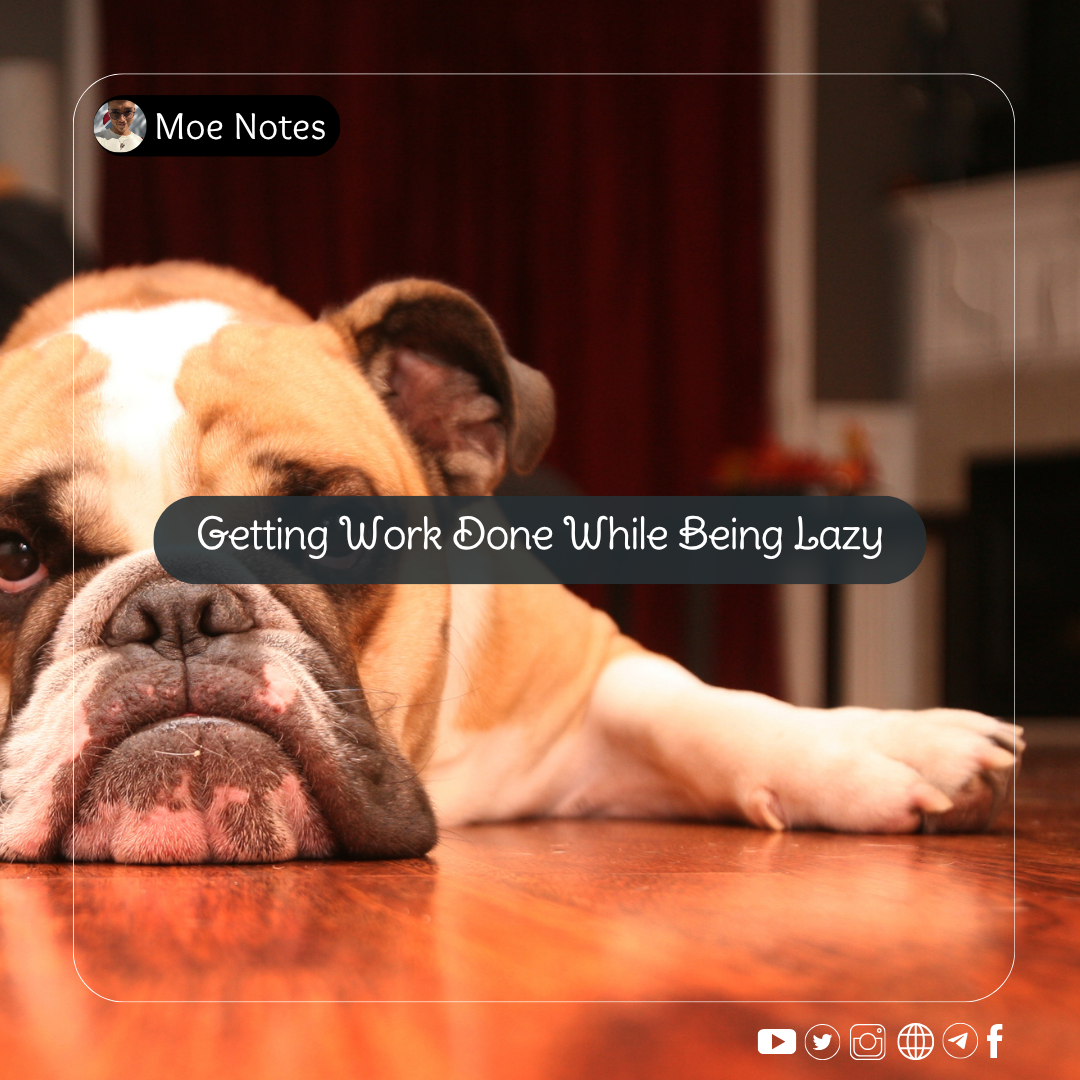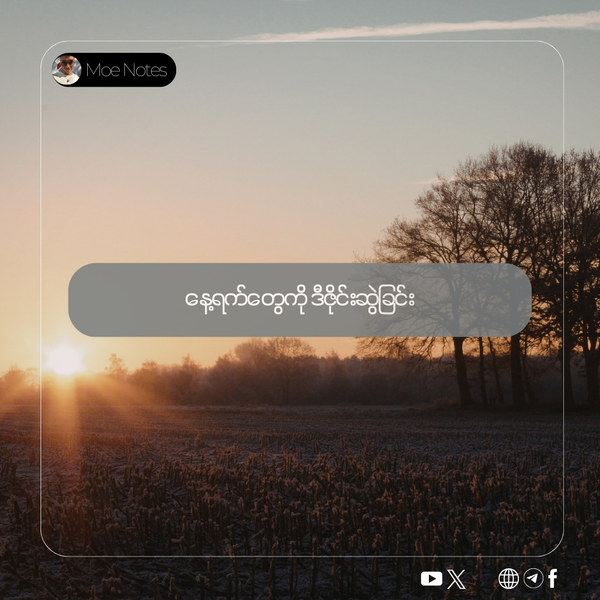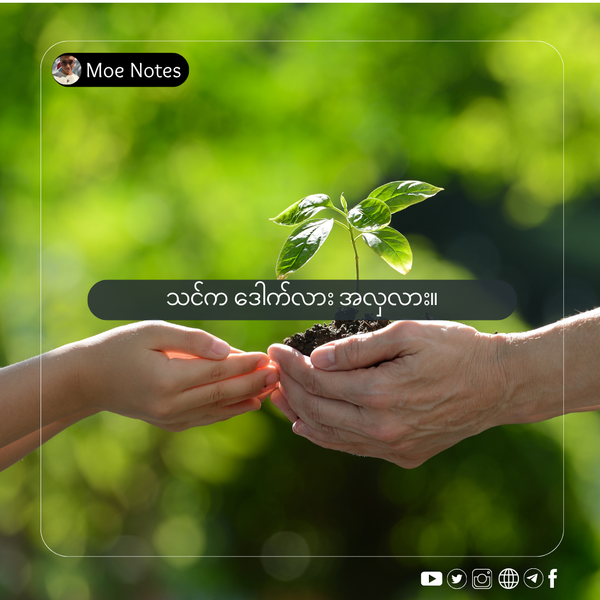Getting Work Done While Being Lazy

Right now, I'm sitting at university. It's 1 AM.
I'm sleepy, but I'm still writing. Still listening to music. Still working. Why?
I have so much to do. Things to plan, things to write, small tasks for my studies—so, so many. But am I getting it done? Am I finishing what I planned? No. Just bits and pieces here and there.
I'm lazy. I just want to lie in bed, scroll through my phone, and watch a TV series. And normally, I do, if I have free time. But on tired days, I don't want to do anything. But there's no choice. I have to keep running.
Why? How do we avoid these times? And if we can't, how do we prepare, face, and overcome them? In other words, when your body and mind aren't at their best—not 'on top of your game'—how do you get through the challenges?
It's similar to the 80/20 rule, but I want to explain it more simply.
Let's say we're writing an article. First, we have to think of a topic. Do I want to write about school? Education? Life? We have to think. Once we've decided, we jot down all the related knowledge we have in our heads. We have to see how others have written about it and decide what we can add. We have to think. We have to use our brains.
Once we've done that much thinking, it's just a matter of writing it down. We just have to arrange the things in our head, the things we've seen and experienced in life, into words. The thinking part is short and requires brainpower. Writing down what you've already thought about doesn't take as much brainpower, but it makes your fingers tired. It's exhausting.
Okay, the writing is done. Now, check the spelling. Check the sentence structure. Then, break it into paragraphs. Design an image to go with it. These things take the longest, but they don't really require much brainpower.
What I want to say is: Use your brain carefully when it matters. When it doesn't matter, let your brain rest and just do the work calmly.
In other words, 80% of big tasks are made up of small, boring, repetitive jobs.
It's hard to decide what kind of patty, what lettuce, and what sauce to put on a burger. But once the recipe is decided, it's easy to make. You can keep going even while feeling lazy. It's just made up of boring things like slicing pickles, frying the patty, and toasting the buns. By just preparing it step-by-step, the result is a great burger.
You can be lazy. You can be tired. You can have zero motivation. But you just have to keep going. Being 'on top of your game' isn't a feeling. It's a system.
Part 1: Fueling Up Before the 'Battle' (The Low-Cost Essentials)
You can be tired, but you can't neglect yourself. Your body and mind are your most important tools. So, how do you refuel? How do you try to eat, live, and keep your body energized?
- Get enough sleep: This is the cheapest and best way to recharge. Sleep early, wake up early. Try to live with a regular sleep and meal schedule.
- Food: Eat well. Energy drinks and coffee are just 'renting' your alertness for a short time; they're not 'building' it.
- Habits: Dress neatly. Spend your time with the people who are worth it. Do your work. Being well-groomed gives you good mental energy. Invest in comfortable, loose-fitting, high-quality materials like cotton.
- Environment & Tools: For me, if there's anything that makes me comfortable that money can buy (and I can afford it), I'll get it. Listening to music on good headphones, typing on a good mechanical keyboard, working on a big monitor—these things might not make the lazy process fun, but they remove obstacles and make it easier.
- Mental Space: Don't just work and study 24/7. Rest. Disconnect. Give time to your family. Set a 'down time.' During that time, cook and eat good food.
These things won't keep you motivated 24/7. But they will give you the 'baseline energy' to do the boring work.
Part 2: Using Your 'Two Brains'
"As an architecture student, people think we always need to be 'on top of our game.' In reality, our work is split in two. Let's use my essay-writing process as an example."
1. Tasks for the 'Automatic Mind' (The Lazy Mind) These are repetitive tasks that don't need much of the brain's analytical energy. But they must be done to finish the job. For example:
- Sorting the Bibliography or Reference List A-Z, fixing the format, checking links.
- Filling in the Table of Contents and List of Figures with exact page numbers.
- Filling in your name, title, and checkboxes on university Ethics forms.
- Drawing basic templates for diagrams and infographics.
You don't need to be 'on top of your game' for these tasks. Are you lazy? Just do it lazily. Listen to a podcast while you do it. Listen to music. These tasks don't need your 'analytical mind.' They just need your 'time'.
These kinds of tasks take up the most time. Modern AI technology exists to make these boring tasks easier. Not all of them, though.
2. Tasks for the 'Active Mind' (The Analytical Mind) These are the tasks that require you to be 'on top of your game.' The things that will make your essay truly good.
- Building the Central Argument: Defining, identifying, and solving the core problem.
- Finding the Gap: Searching for a void within existing research and writing.
- Analysis: Who is wrong in which paper? Whose views are similar? Who is mistaken? Who seems right but is actually wrong? Who seems wrong but is actually right?
All of this requires brainpower. You can only find the answers to these tough questions with this kind of focused mind.
In truth, 24/7 active people are rare. In any field, it's by trying and trying that you become skilled and the work becomes smoother.
Part 3: The Strategy in Action (The Daily Battle Plan)
So, it's clear: Protect your 'Active Mind' energy as your most valuable resource. Don't let anyone or anything compromise it. Don't let emotions, family/relationship issues, or work problems cause trouble.
Morning (or your freshest time) (High Energy) During this time, prioritize and solve the high-focus tasks, the things that require decisions and critical thinking. Decide, "What will I finish today? What will I set aside?"
You've eaten, you're well-rested, the sun is shining, and if you have a cup of coffee, how enjoyable is that? Even if you have 10 things to do, you're fine. You just have the will to do it. For me, I don't have a girlfriend to distract me, so it's even better.
If you have to go to uni or work, go early. Get meetings and conversations out of the way early.
Afternoon (or when you get tired and lazy) (Low Energy) As the evening approaches, you're buried in the day's work, your social energy is drained, and you won't have the will to do anything. During this time, do the laundry, fill in Excel sheets, tidy up, chat with people you need to, go grocery shopping, or do small Photoshop edits.
Try to get it done with snacks, a short nap, or a walk. It'll be fine.
At the end of the day, you will have:
- Made real, deep progress on the hard stuff.
- Also finished the easy but time-consuming tasks.
This method won't exhaust you; it will give you the satisfaction of completion.
Conclusion: Don't Only Have Work in Your Head (The Recharge)
The final, most important point: Don't only have work or school in your head.
'Wasting time' is important. Watching movies, taking photos, or spending time on an unrelated hobby—these are ways to 'recharge' your active mind. This isn't 'Procrastination.' I call it 'Strategic Recharging.'
Productivity is not about being relentlessly motivated. It's about:
- Knowing when to engage your 'Active Mind' with full force.
- Knowing when to work lazily with your 'Passive Mind.'
Alright, I'm going to be a lazy person now. When I get back, I'll hang the laundry, have a snack, talk a bit, and sleep. I have uni in the morning. I'll be 'active' then.



